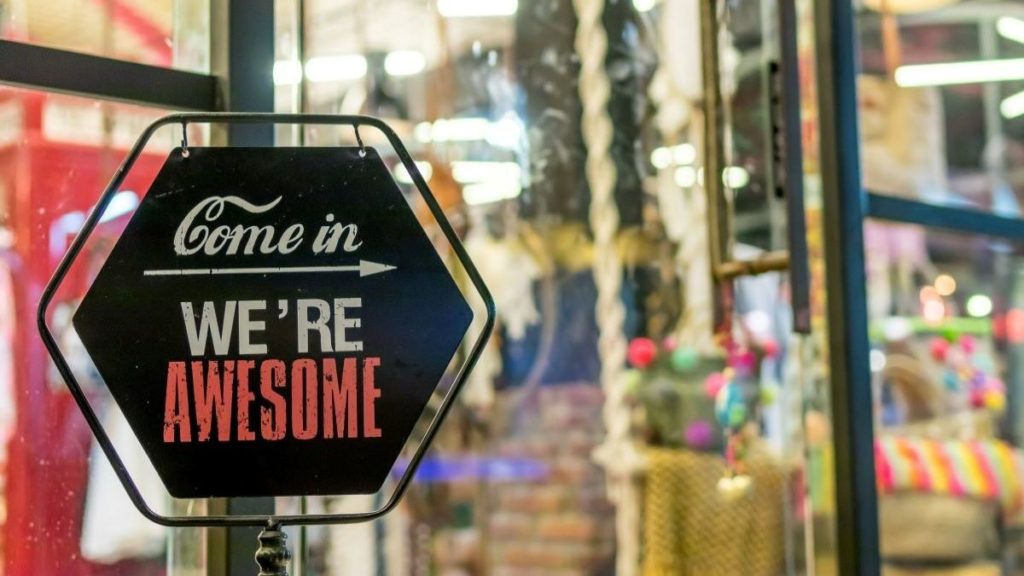Featured image by Artem Beliaikin from Pexels
Surviving as a business is hard enough with all the competition and significant costs to run a storefront. Add a lockdown to the mix and retail business owners are faced with enormous challenges. Business owners have something to learn from retailers who rocked it during the pandemic.
RELATED ARTICLE: 3 TIPS FOR BUILDING A LASTING FAMILY BUSINESS
Plenty of start-ups have had to take a “make-it-up-as-I-go” approach to selling. Others had a game plan already in action. We’ve seen restaurants, bars, and retail operations develop a variety of strategies to stay afloat and thrive during the pandemic’s first year.
Online Retail Continued to Succeed During Lockdown
If a business didn’t already have a virtual storefront before COVID-19, they did after the lockdown started. The Bouqs Company, a floral subscription service, continued to roll out flower delivery for Mother’s Day. This was despite the fact that the April 2020 lockdown prevented them from collaborating with specific farms. Regardless, they got back on their feet quickly.
Bouqs was able to manage this because their business model was already dedicated to convenience. For example, they already had a same-day shipping guarantee and an online focus. Many other brick-and-mortar operations, on the other hand, found it difficult to switch initially.
Yoga and Gym Studios Held Online Classes and Apps
Yoga and gym studios were initially worried that they wouldn’t survive the lockdown. The “six-feet-apart” rule made it nearly impossible for their members to work out safely. Personal trainers and business owners had to get creative by offering online classes. Many developed exercise routines that required little equipment. Others adjusted by developing fitness apps.
Psychologists and Doctors Both Offered Online Consultations
Before the pandemic, many psychologists and doctors wouldn’t offer consultation or advice through the phone or online. They quickly changed their tune when they realized the lockdown would last longer than a couple of months. The lockdown proved that it’s possible to receive valuable health advice from a medical professional without leaving the house.
Lockdown Made Pivoting Necessary
Being flexible during uncertain times can save your business. However, you need to have a good idea before taking that first step. EPlastics, a plastics fabrication company, had to shut down its showroom and expected the worst. However, the quick decision to manufacture protective plastic sheets and shields made their sales go up by 30% in 2020.
RELATED ARTICLE: HOW AUSTRALIAN BUSINESSES ARE MANAGING DURING COVID-19
EPlastics even created some popular new products, like a portable barrier to pass money through. They also made plastic boxes with holes for health care professionals and custom projects for supermarkets. Even NASA asked for EPlastics to supply plastic for its Robotics Alliance Project.
Happy Cork Became a Black-Owned Business on the Rise
As the pandemic trickled on, so did the Black Lives Matter protests across the United States. Happy Cork, a black-owned wine business, received massive support during and after the height of the protests. They were also receiving more sales due to their innovative practice of selling wine by the crate, including the incredibly popular Black Girl Magic wine range.
American Bicycle Group Saw That More Time Outdoors Meant More Bikes
When the pandemic took hold, American Bicycle Group resumed production on the factory floor for their bikes despite the lockdown. That slight pivot to boost production saved the company. Their custom-built road bikes, which can sometimes reach prices as high as $2,500, grew in popularity when athletes and workout enthusiasts switched to biking.
Remote Work Became the New Normal During Lockdown
There are too many companies to name, but plenty of industries and businesses decided to close down their offices permanently to become remote forever. For instance, Woodland Hills-based Goetzman Group, with almost 100 employees, switched to an entirely remote workplace as the lockdown continued.
Owner Greg Goetzman told the Los Angeles Times that he “(hadn’t) seen a drop in work quality.” He said he sees this transition as a positive change in the company, despite its initial difficulty. In 2020 the Goeztman Group increased both their workload and their client base.
Should your company switch to remote full-time? That decision is ultimately up to you, but if you have a small business that continues to remain successful, you may want to consider this option. It’s unlikely the lockdown will fully end anytime soon, so you may need to adjust.
